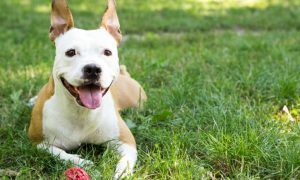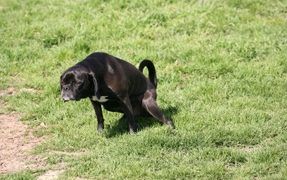“This post contains affiliate links, and I will be compensated if you make a purchase after clicking on my links.”
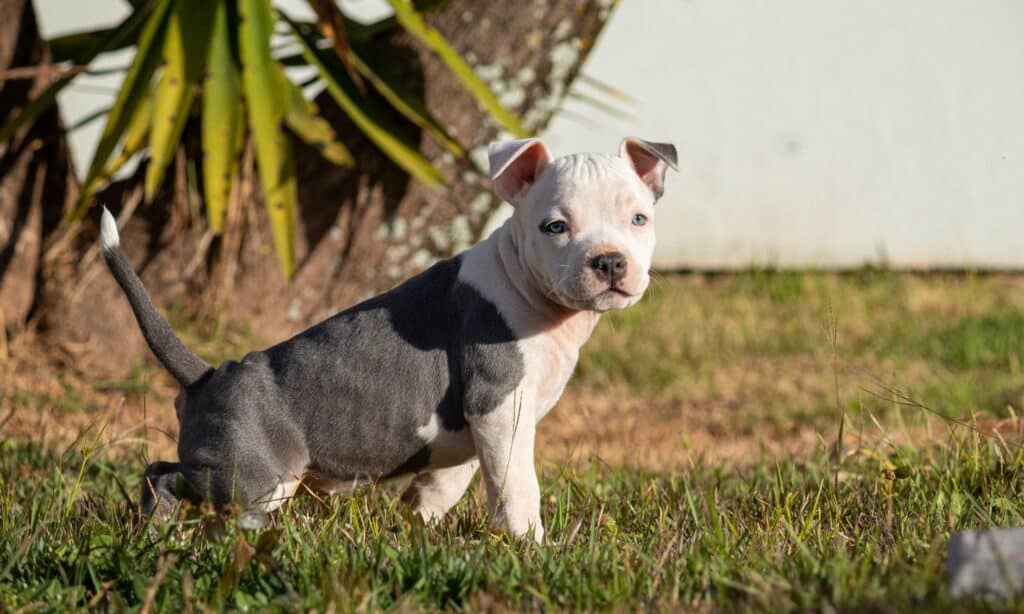
No matter how much you love your dog, it’ll annoy you when their urine damages your freshly cut grass in the yard. A range of nitrogen compounds can be found in dog urine, and too much nitrogen will cause the grass to burn and turn yellow.
The size of the dog does not matter. It’s how frequently they pee in one location. So, what do you do to keep your dog’s urine from ruining your lawn? Keep reading as we list out tips to help you!
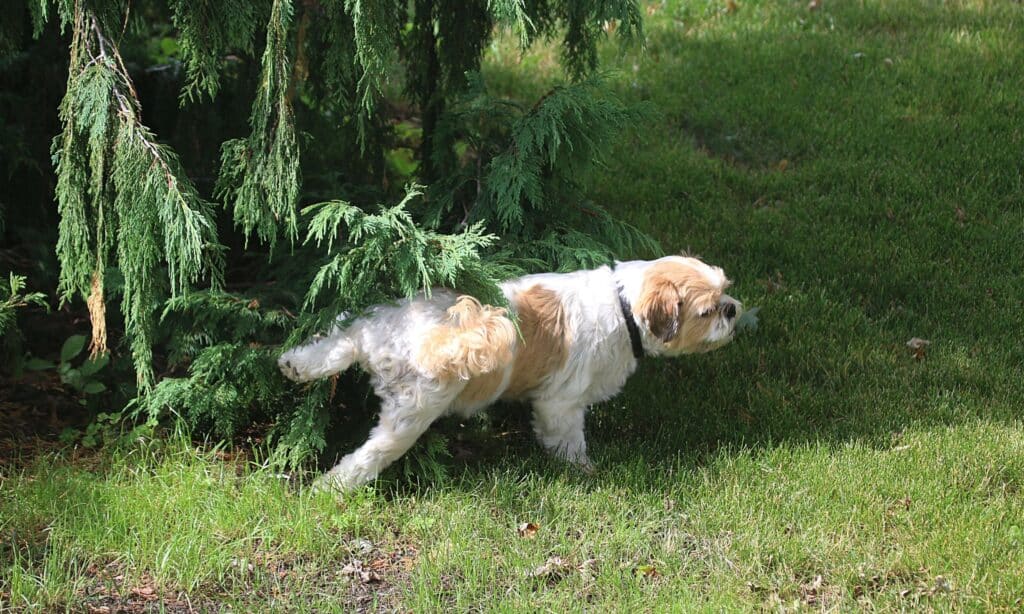
Designate A Pee Area
Train your dog to pee in a designated area. Setting aside a spot for your dog to relieve himself will save the rest of your yard. Similar to potty training, you’ll need to put him on a leash and wait until he urinates in one area of your yard. Give him treats and continue the process until he gets it.
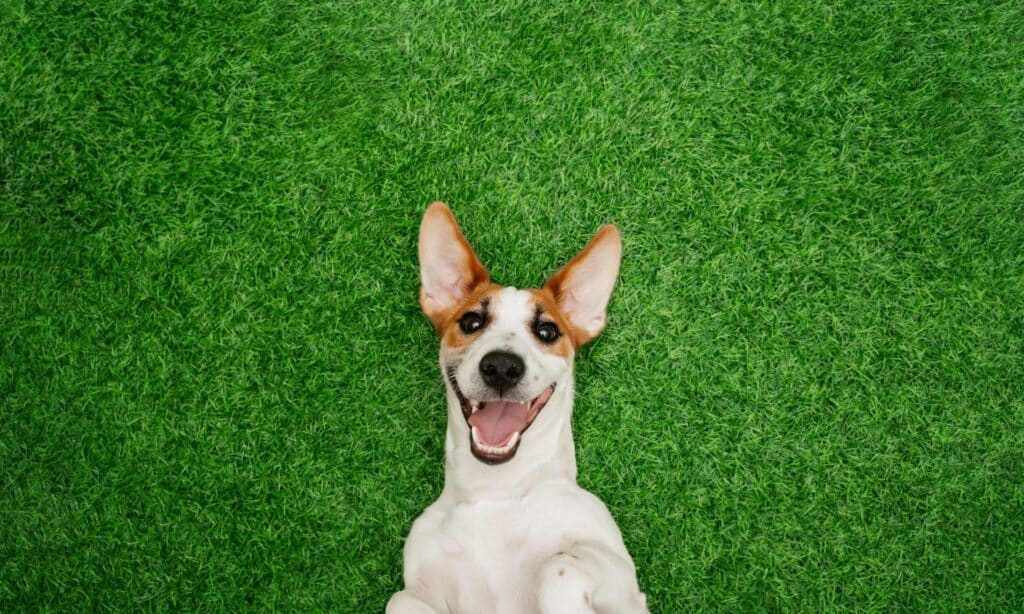
Maintain Your Grass
Even the slightest amount of nitrogen in dog pee could be enough to cause your lawn to burn. Nitrogen is the key ingredient in fertilizers, and using too much of it can also kill your grass. Use fertilizers with less nitrogen and replace the dead areas with new grass. Water your lawn regularly, making sure the water penetrates deep into the soil. After your dog urinates on the designated pee spot, spray the area with water to dilute the urine and reduce the nitrogen impact on your lawn.
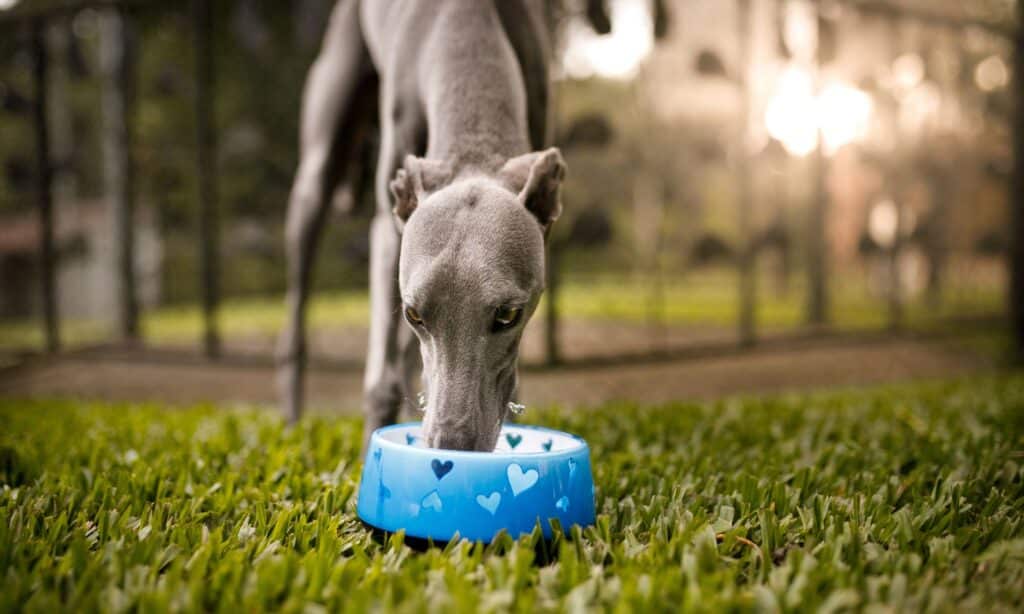
More Water
Dilute your dog’s pee by increasing their water intake. A more diluted pee is equal to a less concentrated nitrogen level. Encourage your dog to drink more water by providing plenty of fresh water sources like fountains and bowls. For hot summer days, you can use ice blocks or freezer chilled bowls.
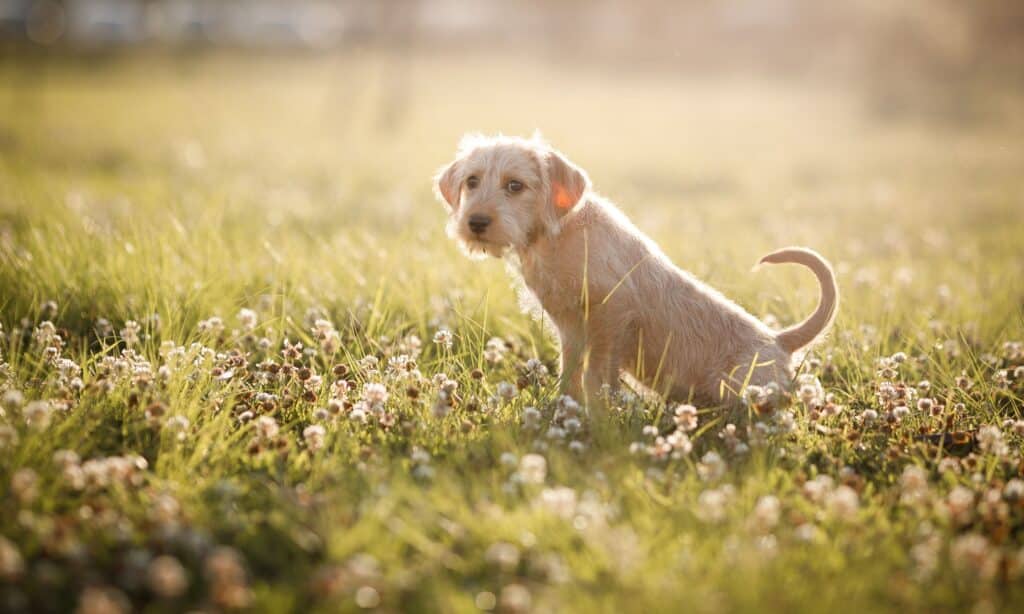
Re-Plant Your Yard
Consider replanting your lawn with a stronger grass variety. Depending on your soil and climate, seeds like perennial ryegrass and fescue are the most resistant grasses, while Kentucky bluegrass and Bermuda are the most vulnerable. Ornamental grass, clover, or moss are excellent grass substitutes that are long-lasting, pee-resistant, and require less watering.
You will need patience and continuous training for your dog to keep them away from the vulnerable parts of your yard. And there you have it! Follow these tips and let us know what you think!

